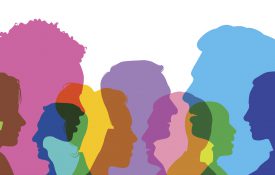-

Imagining Dialogue Can Boost Critical Thinking
Examining an issue as a debate or dialogue between two sides helps people apply deeper, more sophisticated reasoning when thinking about that issue.
-
New Research From Psychological Science
Read about the latest research published in Psychological Science: When Perception Trumps Reality: Perceived, Not Objective, Meaning of Primes Drives Stroop Priming Anders Sand and Mats E. Nilsson The researchers investigated whether the perceived meaning of a stimulus, rather than the objective meaning, drives semantic congruency priming. Researchers used a Stroop priming paradigm to present participants with stimuli. A prime word, either the word "blue" or "red," was displayed in gray font for varying amounts of time. The prime was followed by a target stimulus, either a blue or a red rectangle.
-

Multilab Replication Project Examines Cooperation Under Time Pressure
A large-scale replication effort aimed to reproduce a 2012 study showing that people forced to decide quickly contributed more to a communal pot than did those who had to wait before deciding.
-

New Research From Psychological Science
A sample of new research exploring the neural representation of interpretive frameworks, motor planning for joint action, and the influence of attention on spatial resolution.
-

To Understand Others’ Minds, ‘Being’ Them Beats Reading Them
We may believe we can tell what others are experiencing by observing them – but new research shows we’d get a much better idea if we put ourselves in their shoes instead.
-

Teens Drive More Safely in the Months After a Crash
Research involving actual driving data from over 250 teens suggests that involvement in a severe crash may prompt adolescents to engage in safer driving behavior.

